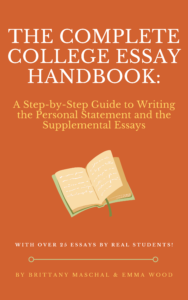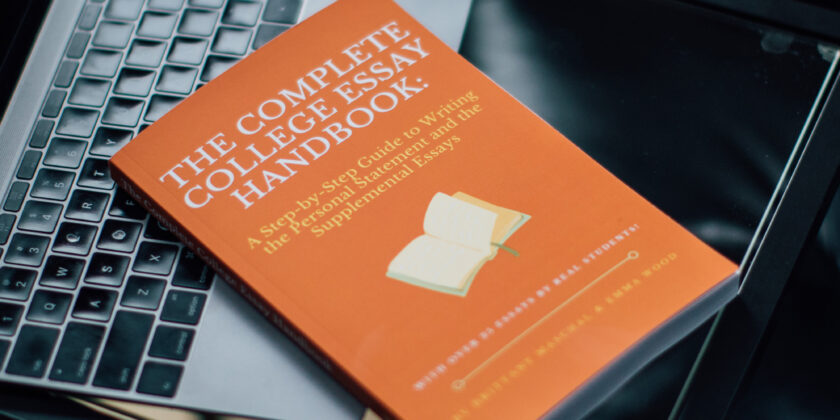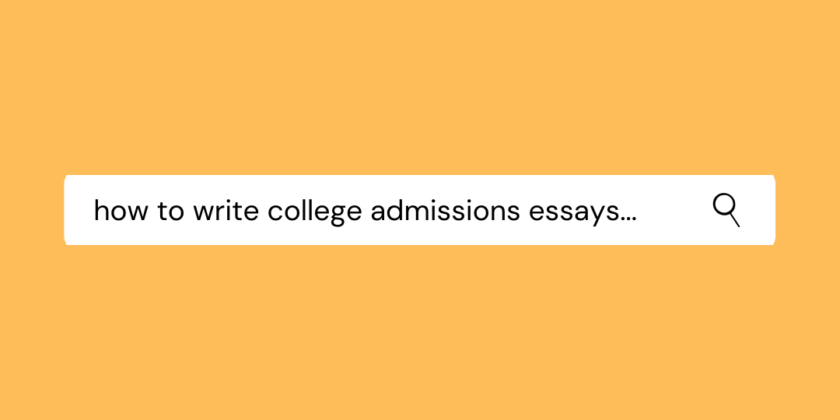Personal Statement Do’s and Don’ts
It’s almost time to start writing essays!
Our essay experts know best. Check out these 10 tips from Emma that will help you write the most effective personal statement. Interested in working with Emma? Contact us.
Now is the best time for juniors to start with us!
- Don’t worry about the prompts. It’s helpful to read through the prompts to see if doing so sparks any ideas; however, there is no need to stress about writing an essay that exactly “answers” a prompt. Your goal is to write the best essay you can about whatever you decide is best to write about. Working with students 1:1, we totally disregard the prompts and usually find that their essay still easily fits under one of the questions. And, if not, there is often an open-ended prompt such as: “Share an essay on any topic of your choice. It can be one you’ve already written, one that responds to a different prompt, or one of your own design.”
- Do open with a scene. A strong opening scene draws the reader into your essay. Admissions officers and their first-round readers have hundreds of applications to get through—make yours stand out from the first sentence. Intrigue them or scare them or make them laugh. Make them want to keep reading.
- Do focus on a single story. You only have 650 words. Perhaps that sounds like a lot to you: it’s not. There is no reason you should worry about filling it up. Through our process, you will find out how to generate enough detail to write an essay about any story. Nor should you worry about cramming as much as possible into the personal statement. Remember that colleges have all of your application data and that trying to do too much in the essay will only end up making your essay feel rushed and scattered.
- Do make sure that your story has a clear beginning, middle, and end. You can tell your story out of order—for instance, opening with a scene from a stressful moment in order to build suspense before jumping back into chronology—but you always want to make sure your story has each of these elements. Skipping any single one will confuse your reader and make your story feel incomplete (because it is!).
- And yet don’t get bogged down in detail. We usually find students have trouble generating enough detail. But sometimes we get a student who is unable to summarize effectively, too. Having too much detail can make your story confusing and also mean that your reader will have trouble understanding what the most significant elements are. It usually also means you don’t have room for reflection—the most important element in the essay!
- Do present yourself in a positive light. We actively encourage you to tell a story that showcases your vulnerabilities, failures, weaknesses, and mistakes. However, either your narrative or your reflection (or some combination of the two), needs to ultimately redeem you so that your essay, in the end, shows you to be someone who is actively working to improve—to rectify mistakes, move past failures, or strengthen weakness. Your essay should be honest, but its main purpose is to make you seem like someone admissions officers want to see at their colleges! Make sure you come off well.
- Don’t use huge thesaurus words. Again: you aren’t trying to impress the admissions officers! You are trying to show them who you are—and you are trying to make them like you. Using big words can mean using words you don’t quite know how to use, and that will show. Even if you do know how to use them, unless your essay is about how much you love long words or languages, using the big, 25-cent words can make you sound pretentious and overly formal. The language should sound like you and be relatively casual—not curse-word, talking-with-friends casual, but maybe talking-with-your-grandmother casual.
- Do use vivid, interesting words and varied sentence structure. Being casual doesn’t mean the writing shouldn’t be good or interesting! Do push yourself to use words you might not use in your everyday speech, and do mix up the sentence structure to keep the writing varied and exciting. Do feel free to include words from your personal vocabulary—words from the language you speak at home or from a regional dialect or words you’ve made up. That can add a lot of texture and personality to an essay. Just make sure you define the words for your reader if the meaning isn’t clear from context.
- But don’t use emotional language: I was happy; I was sad. Instead, let an action depict the emotional state. That is, instead of saying “I was happy,” you might write, “I couldn’t help skipping a few steps down the street after hearing the news.” And, instead of saying “She was sad,” you might write, “Her shoulders slumped, and she cradled her head in her hands.” You can’t see an emotion, and you always want to give the reader something to see.
- And don’t use cliche—i.e. common, predictable, overused—language. Cliche language includes (but is definitely not limited to!) phrases like:
- I need to be true to myself.
- Time heals all wounds.
- Every cloud has a silver lining.
- Good things come to those who wait.
- I learned more from them than they did from me.
- Every rose has its thorn.
- You win some, you lose some.
- Little did I know.
Of course, your essay might have one of these messages at its heart. Maybe you did learn more from the kid you tutored than they learned from you. Maybe you did find the “silver lining” in a terrible situation. Both of these could make for great essays. But you want to verbalize that realization in your own unique and surprising way.
For more, grab a copy of The Complete College Essay Handbook. It’s a no-frills, practical guide that will give students the confidence and know-how they need to craft the best essays for every single school on their list—in less time and with less stress.
*Stay in the know! Subscribe*










